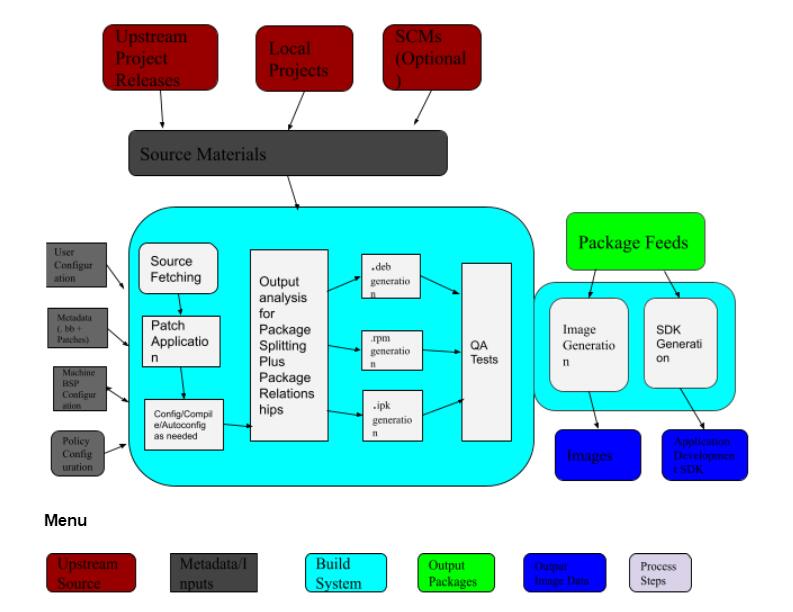Contents
- What is the Yocto Project?
- What are Yocto Project components?
- BitBake
- OpenEmbedded-Core
- Poky
- Documentation
- Toaster
- ADT Eclipse
- The OpenEmbedded Build System Workflow
- Benefits of Yocto
- Differences Between Embedded Linux Distributions
- Yocto Project vs. Ubuntu Core
- Yocto Project vs. Buildroot
- Yocto Project vs. Debian
- Summary
Special Offer: Get $100 off your order!
Please email [email protected] for details.
What is the Yocto Project?
Yocto Project is an open-source undertaking
. The Yocto Project is an aggregation of open-source projects and metadata, useful for various embedded products. Yocto Project aims to provide abundant resources in assisting developers in creating customized Linux systems for any hardware platform. Thus, the Yocto Project participants have access to abundant configuration, templates, software, and continuation tools suited to various embedded devices. Also, the components and tools in Yocto Projects are different from the OpenEmbedded build system and reference distribution (Poky).What are Yocto Project components?
Computer language source code
You can download most of the Yocto project tools and components separately. Here are some of the key elements that are essential in Yocto Projects:BitBake
It's the build system engine of the OpenEmbedded build system. BitBake is crucial in metadata parsing, generating task lists, and implementing the tasks.OpenEmbedded-Core
It is the metadata comprising classes, essential recipes, and other related files. Additionally, the metadata is commonplace in different OpenEmbedded derived systems like Yocto Projects.Poky
It represents the reference OS/ reference distribution of any Yocto project. Poky comprises BitBake, OpenEmbedded-Core, and other metadata sets to create a unique/customized distribution. Further, it applies the OpenEmbedded Build System in creating a simplistic embedded operating system. The key functions of Poky include the following:- Provision of a basic level distro infrastructure that guides on distro customization process.
- It offers a channel for the verification of the Yocto Project components.
Documentation
It features the developer’s guides and user's manual to assist Yocto project participants in understanding the various components.Toaster
The toaster is BitBake's web-based interface and metadata.ADT Eclipse
It is an Eclipse's essential plugin.Special Offer: Get $100 off your order!
Please email [email protected] for details.
The OpenEmbedded Build System Workflow
During the build system download stage, you'll have a Poky build ‘file’ which can either be a recipe or a layer. A recipe is the basic metadata form with the tasks and settings useful in creating a binary image file. On the other hand, a layer is a repository of related recipes. Check out this high-level workflow that represents a build:
OpenEmbedded Build System Workflow
This flowchart identifies the different input, output, metadata, and process logical blocks essential in the system.Benefits of Yocto
A young computer science student developing a Linux System
- It overemphasizes mechanism over policy. Hence, community developers have a chance to create their policies.
- Besides, it trounces the conventional Linux distribution model as it features a simpler configuration procedure.
- There is easy customization resulting from the modular architecture.
- Further, it minimizes the duplication of effort. Also, it brings the benefits of similar open-source projects like Eclipse and OpenEmbedded.
- In addition, because it is an open-source project, it guarantees ease of access and flexibility.
- Furthermore, it has streamlined updates and new version releases once every six months.
- It also gives community developers wide community support. Hence, application development is relatively easy.
- Additionally, under the Yocto project umbrella, developers can access a vast array of tools and software development kits (SDK).
- Lastly, the Linux Porting process for Linux-based embedded systems is easier with Yocto Project.
Differences Between Embedded Linux Distributions
Ubuntu OS on a mobile device
Yocto Project vs. Ubuntu Core
Ubuntu Core is a Linux distribution that comes in binary form. On the other hand, the Yocto project is not a distribution system. Instead, it is an aggregation of tools that facilitate the development of a distribution system.Yocto Project vs. Buildroot
The two differ in terms of simplicity. The Buildroot is relatively simpler, smaller, and delivers quicker results. In contrast, the Yocto Project necessitates more time for image building. Also, it needs more disk space. Nonetheless, the Yocto project layers are simpler to maintain than Buildroot. Furthermore, since Yocto represents a more complex build system, it also provides additional options.Yocto Project vs. Debian
Debian is synonymous with source and binary. Also, it originates from workstations and servers enterprise space. On the other hand, the cardinal aim of the Yocto Project was to address Linux based-Embedded systems.Summary
In conclusion, the Yocto Project is a powerful open-source platform for Linux-operating system developers. It facilitates custom applications by aiding developers to create on any hardware system. We hope that we have left nothing unanswered concerning this platform. But if you have any questions, talk to us at any time.Special Offer: Get $100 off your order!
Please email [email protected] for details.











